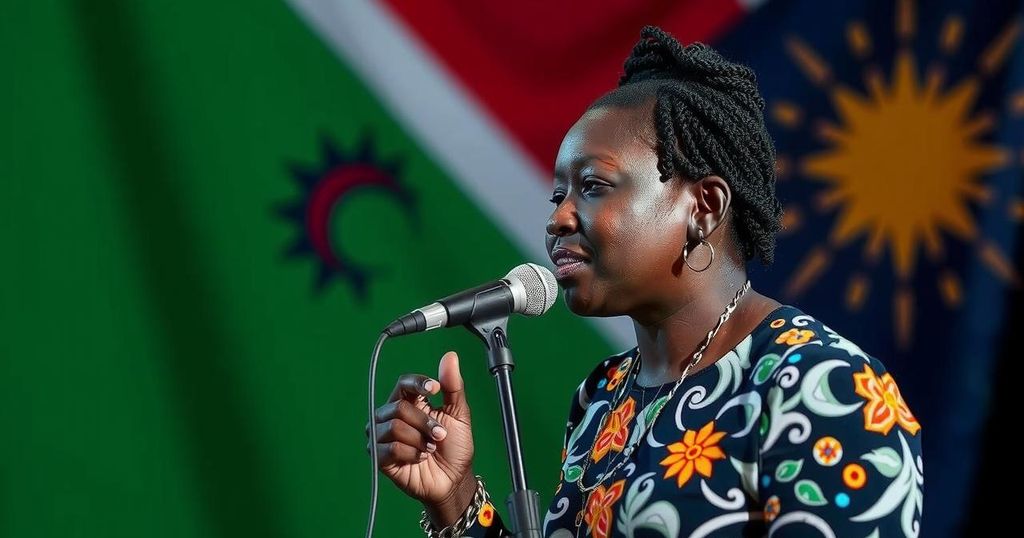Namibia’s presidential election features Netumbo Nandi-Ndaitwah as a leading candidate, potentially becoming the first female leader. The ruling SWAPO party confronts increasing public dissatisfaction due to high unemployment rates, particularly among the youth. With approximately 1.4 million voters, this election could witness a significant political shift in a region undergoing notable electoral changes.
As Namibia embarks on a pivotal presidential election, 72-year-old Netumbo Nandi-Ndaitwah emerges as a formidable candidate for the presidency, presenting the prospect of becoming the nation’s first female leader. Having participated in the independence movement of the 1970s, Nandi-Ndaitwah currently serves as the vice president and represents the ruling SWAPO party, which has governed since 1990. Early voting results indicate her lead, yet the party faces mounting discontent over high unemployment rates and economic challenges affecting many Namibians, particularly the youth.
The sentiment driving the elections is palpable, echoing similar political upheavals observed in neighboring countries. South Africa’s African National Congress recently lost its majority in a transformative election, while ruling parties in Botswana and Mauritius also faced substantial defeats. Such trends are of significant concern for SWAPO, which recorded its lowest ever electoral support during the last election in 2019.
With approximately 1.4 million registered voters, Namibia’s electorate will determine its leadership and the future composition of Parliament. Another noteworthy candidate includes Panduleni Itula, a former dentist who obtained notable attention as an independent in previous elections. Should no candidate achieve a majority of over 50% of the votes, a runoff would ensue, a scenario previously unseen in Namibian politics.
Nandi-Ndaitwah strives for economic reform, promising considerable investments to combat youth unemployment, which stands at an alarming 20%. With a proposed budget of about 85 billion Namibian dollars (approximately $4.7 billion), she aims to create over 500,000 jobs, although critics question the feasibility of such ambitious goals. Additionally, she has pledged to address women’s issues, including reproductive rights and equitable remuneration, reflecting the interests of a significant segment of the Namibian populace. The outcome of this election could herald a transformative chapter in the nation’s history, potentially marking a significant shift towards greater representation and leadership diversity.
The 2023 presidential election in Namibia is crucial as it could result in the country’s first female president, a significant milestone for gender representation in African leadership. Netumbo Nandi-Ndaitwah, a seasoned politician who has played a vital role in the country’s independence movement, seeks to leverage her experience to address pressing social and economic challenges. While SWAPO has long been the dominant political force, growing disenchantment with its governance amid rising unemployment and economic distress has raised questions about its continued popularity. This election occurs amid regional shifts in political power, exemplifying a broader movement towards change in southern Africa, where previously entrenched parties are facing serious challenges.
The upcoming presidential election in Namibia presents an opportunity for significant political change, especially with the potential election of Netumbo Nandi-Ndaitwah as the first female president. The SWAPO party must contend with public discontent fueled by economic hardships, particularly high unemployment rates. With various candidates in the running, including notable challengers, the election could result in a historic shift in governance and policy direction, addressing both economic and gender equality issues that resonate deeply with voters. The political landscape in Namibia mirrors broader trends in southern Africa, suggesting an environment ripe for change.
Original Source: abcnews.go.com






